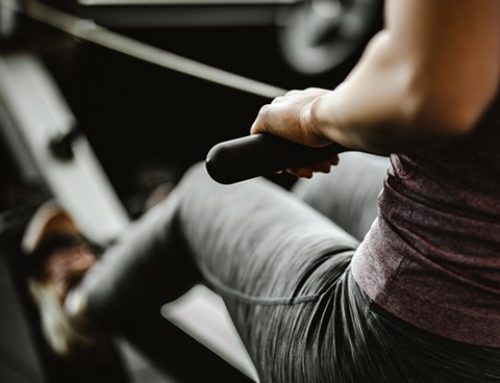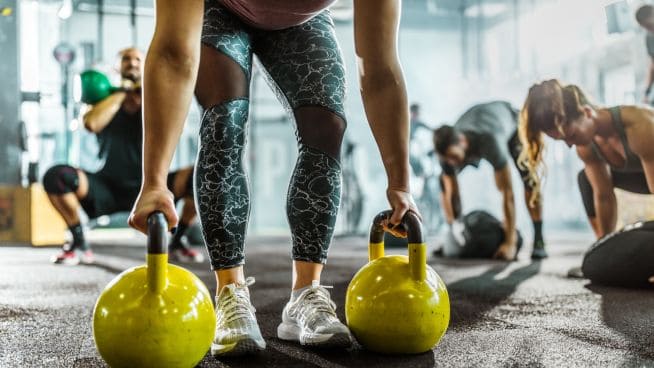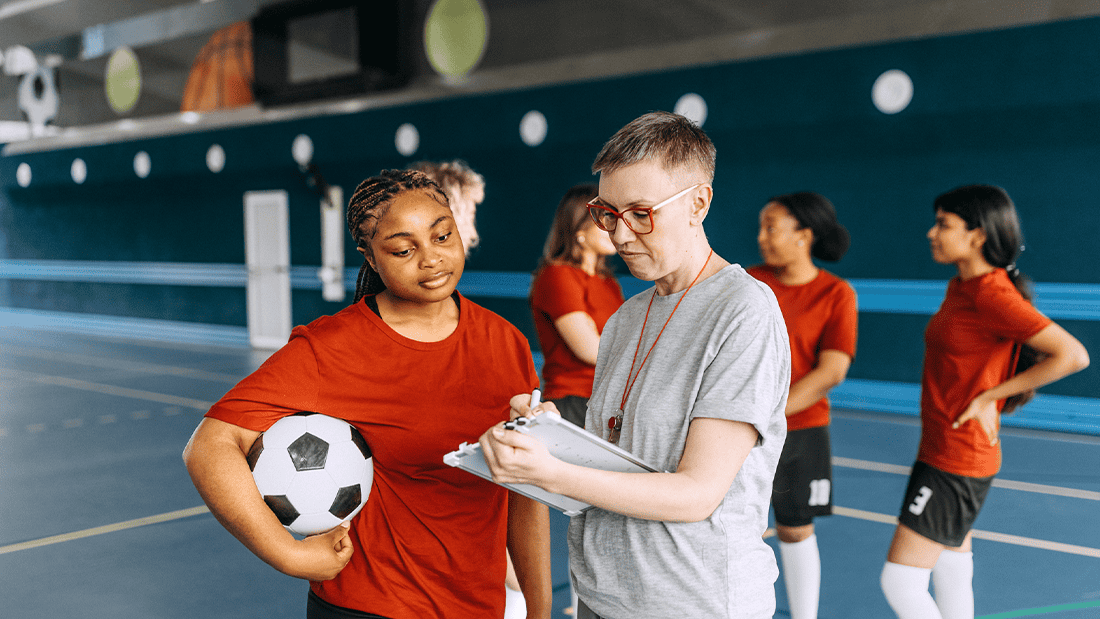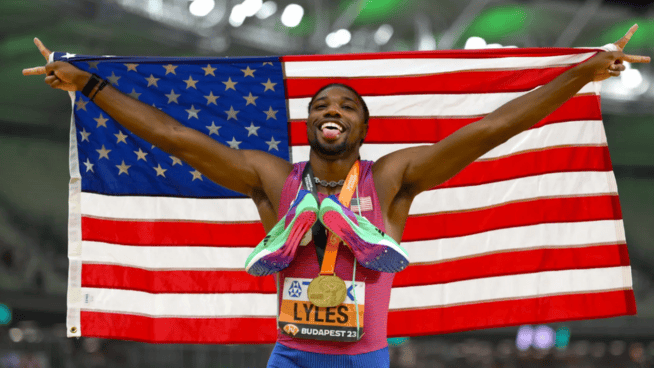Can Music Increase Your Athletic Performance?
Music is a regular part of almost every athlete’s life. Practices, warmups, introductions, during timeouts, workouts, and long bus rides to the stadium usually involve music. Nearly every time you see famous athletes get off the plane or bus, walking into the locker room, they have their headphones on. It’s almost intuitive to every athlete that certain types of music can help you accomplish the task at hand. Different types of music can be used to hype you up for a game, motivate you during a workout, help you focus, or even relax. Just a few seconds of music can change our mood and mindset.
However, is it real? Does music really help increase our performance? At the time of writing this, just last week, there was some drama in an NFL locker room of a struggling team. A player suggested that they play music during practice to lighten their mood. He felt playing some music would help lift their spirits during a losing streak. The head coach didn’t appreciate it and didn’t allow any music. It didn’t work out, but still worth mentioning.
Proven to Improve Your Bench Press
A 2019 study from Samford University demonstrated how music can improve performance with the bench press. A group of college guys experienced in weightlifting was conducted in an experiment. They were asked to perform as many reps as possible with 75% of their max bench press weight with their favorite type of music. Bar speed and each subject’s opinion on their motivation level were measured. They replicated the same experiment with their favorite type of music during a separate workout. They found it pretty clear, as the group performed significantly better as a whole with each individual’s preferred music. They averaged 1-2 more reps more when their preferred music was played. Further, their peak power averaged a 7% increase using preferred music, compared to when using non-preferred music.
Proven to Improve Running Speed
Another study examined the effect of music on running performance. For this study, they had a group of runners run 1.5 miles as fast as possible. One time they ran with no music, and another time they ran with their choice of music. The results for music were once again positive. Running with each individual’s choice of music, the runners collectively averaged a 10-second improvement in time, with an average increased heart rate of 4.5 beats per minute. The most impressive score was their rate of perceived exertion (RPE). RPE is the athlete’s perceived measurement of how difficult an activity is, with 0 being easy, ten being the hardest. All the athletes reported that the music run was easier, even though they ran faster and had a higher heart rate.
Proven to Improve Athletic Performance
These studies show very positive evidence that music can deliver better workouts and improved performance, in both strength and endurance-based activities and sports. Best of all, there’s evidence that music makes exercise and competition easier, even if you train harder. Enhancing the ability to work and train harder should translate to improved competition performance.
No Music During Games
The downside of this is that almost all competition does not allow music, especially with a personal set of headphones. That is a safety issue, and doesn’t make sense for team competition. Ideally, you want to practice the way you play, and the music can’t be replicated. That is probably part of why the NFL coach doesn’t want music blasting during practice.
Despite that, the evidence from these studies clearly demonstrates that music allows us to train harder in a variety of ways during practices and workouts. Music can allow us to lift more weights, run faster, and have more productive training, as well as the probability of boosting team morale.
So, can music increase your athletic performance? Absolutely! If you can train harder in practice or the weight room, the adrenaline of competition will probably replace any music you would play on your own. If you don’t already, go ahead and blast your favorite music during workouts and practice if you can. Without even knowing it, you’ll probably have a more productive workout or practice. Train hard, and turn the music up, athletes!
- https://journals.lww.com/nsca-jscr/Fulltext/2021/06000/Self_Selected_Motivational_Music_on_the.24.aspx
- https://journals.lww.com/nsca-jscr/Fulltext/2021/06000/Effects_of_Preferred_vs__Nonpreferred_Music_on.23.aspx
RECOMMENDED FOR YOU
MOST POPULAR
Can Music Increase Your Athletic Performance?
Music is a regular part of almost every athlete’s life. Practices, warmups, introductions, during timeouts, workouts, and long bus rides to the stadium usually involve music. Nearly every time you see famous athletes get off the plane or bus, walking into the locker room, they have their headphones on. It’s almost intuitive to every athlete that certain types of music can help you accomplish the task at hand. Different types of music can be used to hype you up for a game, motivate you during a workout, help you focus, or even relax. Just a few seconds of music can change our mood and mindset.
However, is it real? Does music really help increase our performance? At the time of writing this, just last week, there was some drama in an NFL locker room of a struggling team. A player suggested that they play music during practice to lighten their mood. He felt playing some music would help lift their spirits during a losing streak. The head coach didn’t appreciate it and didn’t allow any music. It didn’t work out, but still worth mentioning.
Proven to Improve Your Bench Press
A 2019 study from Samford University demonstrated how music can improve performance with the bench press. A group of college guys experienced in weightlifting was conducted in an experiment. They were asked to perform as many reps as possible with 75% of their max bench press weight with their favorite type of music. Bar speed and each subject’s opinion on their motivation level were measured. They replicated the same experiment with their favorite type of music during a separate workout. They found it pretty clear, as the group performed significantly better as a whole with each individual’s preferred music. They averaged 1-2 more reps more when their preferred music was played. Further, their peak power averaged a 7% increase using preferred music, compared to when using non-preferred music.
Proven to Improve Running Speed
Another study examined the effect of music on running performance. For this study, they had a group of runners run 1.5 miles as fast as possible. One time they ran with no music, and another time they ran with their choice of music. The results for music were once again positive. Running with each individual’s choice of music, the runners collectively averaged a 10-second improvement in time, with an average increased heart rate of 4.5 beats per minute. The most impressive score was their rate of perceived exertion (RPE). RPE is the athlete’s perceived measurement of how difficult an activity is, with 0 being easy, ten being the hardest. All the athletes reported that the music run was easier, even though they ran faster and had a higher heart rate.
Proven to Improve Athletic Performance
These studies show very positive evidence that music can deliver better workouts and improved performance, in both strength and endurance-based activities and sports. Best of all, there’s evidence that music makes exercise and competition easier, even if you train harder. Enhancing the ability to work and train harder should translate to improved competition performance.
No Music During Games
The downside of this is that almost all competition does not allow music, especially with a personal set of headphones. That is a safety issue, and doesn’t make sense for team competition. Ideally, you want to practice the way you play, and the music can’t be replicated. That is probably part of why the NFL coach doesn’t want music blasting during practice.
Despite that, the evidence from these studies clearly demonstrates that music allows us to train harder in a variety of ways during practices and workouts. Music can allow us to lift more weights, run faster, and have more productive training, as well as the probability of boosting team morale.
So, can music increase your athletic performance? Absolutely! If you can train harder in practice or the weight room, the adrenaline of competition will probably replace any music you would play on your own. If you don’t already, go ahead and blast your favorite music during workouts and practice if you can. Without even knowing it, you’ll probably have a more productive workout or practice. Train hard, and turn the music up, athletes!
- https://journals.lww.com/nsca-jscr/Fulltext/2021/06000/Self_Selected_Motivational_Music_on_the.24.aspx
- https://journals.lww.com/nsca-jscr/Fulltext/2021/06000/Effects_of_Preferred_vs__Nonpreferred_Music_on.23.aspx










